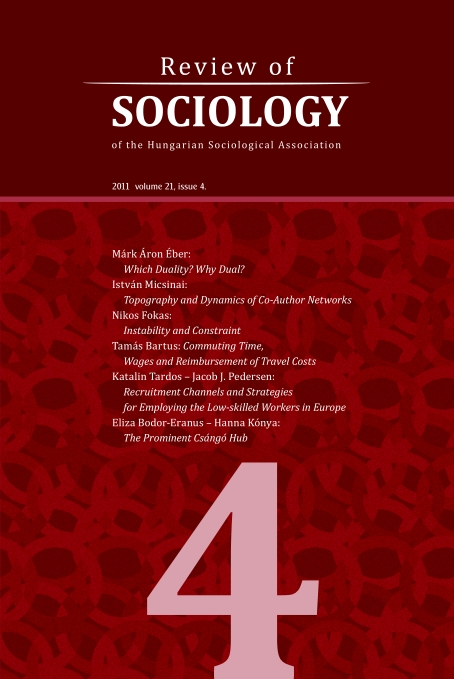Commuting Time, Wages and Reimbursement of Travel Costs. Evidence from Hungary
Absztrakt
The paper explores the hypothesis that high costs of commuting are responsible for the persistent unemployment of Hungarian villages. An attempt is made to estimate the compensating wage differential associated with commuting time using individual-level data, taken from a survey conducted among workers who have left the unemployment register and got a job in March 2001. The empirical analyses are motivated by a simple wage posting model, which predicts a positive effect of commuting time on wages and explicit reimbursement of travel expenses, which is conditional on the unemployment rate at place of work. We find that the unemployment rate in settlements where jobs are located lowers the positive effect of commuting time on wages, but it increases the probability of receiving some reimbursement of travel expenses, conditional on high unemployment at place of work. The findings suggest that wages paid by employers located in high unemployment areas do not compensate for costly commuting. Our study therefore supports the hypothesis that persistent unemployment is maintained by high costs of commuting, relative to wage advantages.





